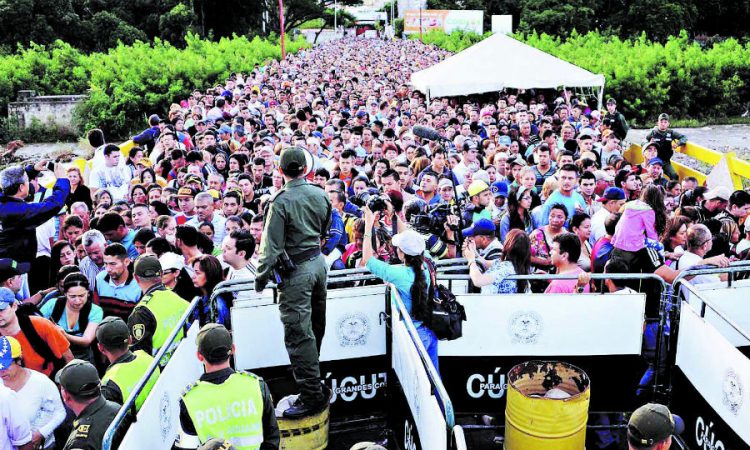Study forecasts 8.2 million Venezuelan migrants for 2019 due to crisis

Venezuelans who have fled the country already exceed three million, with more than one million in Colombia. But a new analysis by the Brookings Institution suggests that the exodus could be dramatically accentuated in 2019. According to this projection, the political crisis, the severe food shortages and the collapse in the oil economy have the potential to raise up to at least 8.2 million the number of Venezuelan migrants and refugees distributed throughout the world today, equivalent to 25.8% of the total population, in a tragedy of magnitude higher than the Syrian refugee crisis, where five million people fled due to the war civil.
The authors of the study, economists Dany Bahar and Douglas Barrios, reached this figure – which includes the three million Venezuelans who are already out of the country – after developing a tool that takes into account the entry of resources from abroad to Venezuela. , for oil production, price of crude oil and inputs from other sources of resources, such as remittances.
“Our base scenario reflects current conditions. Venezuela’s oil production capacity has collapsed and, in November 2018, the country produced 1.17 million barrels per day. The average price of Venezuelan oil in November 2018 fluctuated between US $ 53 and US $ 55 per barrel; and, according to some independent sources, remittances are estimated at US $ 2.4 billion per year, “the researchers point out to justify the projection of 8.2 million Venezuelan migrants and refugees. “If this materializes, the Venezuelan tragedy would eventually overcome the crisis of Syrian refugees,” they warned.
But this projection is not the worst. “Our tool shows that the situation can get worse quickly. If oil production continues to collapse and reaches one million barrels per day, without changing any other variable, we could expect the total number of migrants and refugees to reach more than 10 million, “they say.
When evaluating the weight of the variables used, Barrios explains to La Tercera that “the price (of oil) and international aid are more or less volatile and exogenous”. “So probably the dominant variable is oil production,” he adds.
In fact, regarding the allocation of US $ 9.2 million in emergency funds announced by the UN for Venezuela, Bahar says that in his tool “increases US $ 100 million do very little to reduce the estimated number of emigrants “, So help is needed on a much larger scale to reverse the crisis.
At a political level, Barrios affirms that the government of Nicolás Maduro “has not given any serious signal of addressing the enormous humanitarian tragedy unleashed since 2013.” “I have not seen anything that makes me think that this attitude will change in the face of 2019,” he adds.
Regarding the regional impact of this wave of migration, Bahar points to La Tercera that “worries him in the short term, because in Colombia, for example, we already see how the localities that receive the most immigrants have severe infrastructure problems to serve these people ” “Latin America is lagging behind in terms of infrastructure and has enough fiscal limitations,” he says.
With information from the latercera.com







